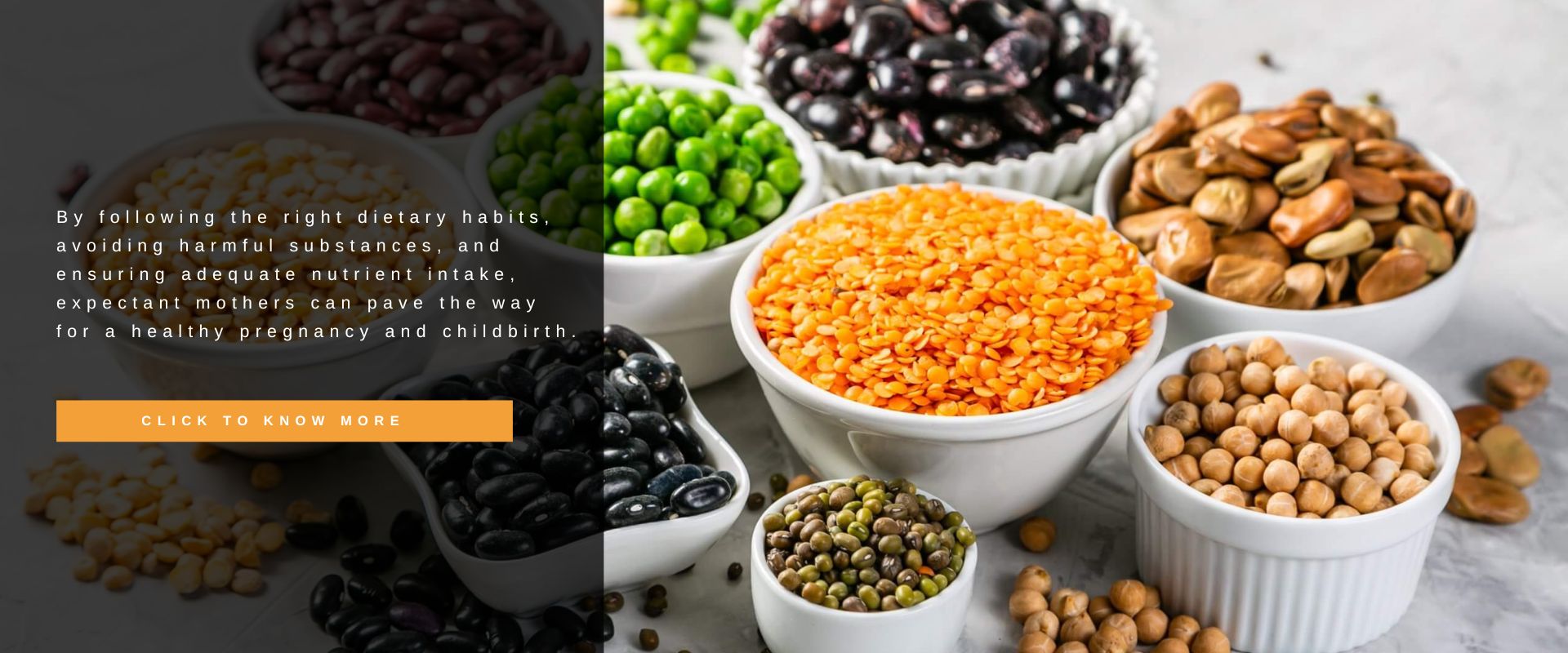Pregnancy is a sacred and transformative journey, deeply rooted in Indian cultural, social, and medical traditions. The dietary habits and lifestyle choices of an expecting mother significantly influence both her well-being and that of her baby. Understanding the essential DOs, DON’Ts, and key nutrients required during pregnancy can help ensure a safe and healthy experience.
DOs: Best Practices for a Healthy Pregnancy
- Follow a Balanced Diet
- Include a variety of seasonal fruits and vegetables (such as spinach, carrots, bananas, guavas, and pomegranates) to ensure essential vitamin intake.
- Incorporate protein-rich foods like lentils (dal), paneer, eggs, fish, and lean meats to support fetal growth.
- Consume whole grains such as wheat, bajra, jowar, and brown rice for sustained energy and fiber.
- Include dairy products (milk, curd, buttermilk) for calcium and probiotic benefits.
- Stay Hydrated
- Drink plenty of water, coconut water, and homemade fresh juices to stay hydrated.
- Include traditional cooling drinks like sattu, chaas (buttermilk), and jeera (cumin) water to aid digestion and prevent acidity.
- Engage in Moderate Physical Activity
- Walking, prenatal yoga, and light stretching help maintain flexibility, improve circulation, and ease delivery.
- Follow Ayurvedic practices like gentle oil massages with coconut or sesame oil to improve blood circulation and reduce stress.
- Get Regular Medical Checkups
- Visit your gynecologist regularly for prenatal screenings and ultrasounds.
- Monitor blood pressure, hemoglobin levels, and blood sugar to detect complications early.
- Follow prescribed iron, folic acid, and calcium supplements as per medical advice.
- Prioritize Mental Well-being
- Practice meditation, deep breathing, and listening to Garbh Sanskar music, which is believed to positively influence the baby.
- Stay socially connected with supportive family and friends to reduce stress and anxiety.
DON’Ts: What to Avoid During Pregnancy
- Avoid Processed and Junk Food
- Refrain from consuming packaged chips, instant noodles, and aerated drinks as they are high in sodium and preservatives.
- Say no to excessive sugar and deep-fried street foods like samosas and pakoras, which can lead to unnecessary weight gain and gestational diabetes.
- Limit Caffeine and Alcohol Consumption
- Reduce tea and coffee intake to not more than 1-2 cups a day, as excessive caffeine can impact fetal development.
- Strictly avoid alcohol and smoking, which increase the risk of birth defects and complications.
- Stay Away from Unhygienic or Unpasteurized Foods
- Avoid consuming raw milk, soft cheese, and unwashed fruits and vegetables as they may contain harmful bacteria.
- Refrain from eating undercooked or raw seafood, sushi, and uncooked eggs to prevent foodborne illnesses.
- Avoid Excessive Physical Exertion
- Do not engage in heavy lifting, prolonged standing, or strenuous workouts.
- Avoid sleeping on your back after the second trimester to prevent pressure on major blood vessels.
- Limit Stress and Negativity
- Stay away from distressing news, excessive social media usage, and negative people who induce anxiety.
- Avoid overworking and ensure adequate rest for both physical and emotional well-being.
Essential Nutrients During Pregnancy: An Indian Dietary Focus
- Iron
- Sources: Spinach, beetroot, dates, jaggery, pomegranate, and black sesame seeds.
- Role: Prevents anemia and supports oxygen supply to the baby.
- Folic Acid
- Sources: Methi (fenugreek), chana (chickpeas), lentils, and citrus fruits like oranges and mosambi.
- Role: Prevents neural tube defects and supports brain development.
- Calcium & Vitamin D
- Sources: Dairy products, ragi (finger millet), sesame seeds, and exposure to sunlight.
- Role: Strengthens fetal bones and teeth.
- Protein
- Sources: Moong dal, rajma, paneer, soya, fish, and chicken.
- Role: Aids in fetal tissue and organ development.
- Omega-3 Fatty Acids
- Sources: Walnuts, flaxseeds, chia seeds, and fatty fish like salmon, mackerel, sardines
- Role: Supports brain and eye development of the baby.
- Fiber & Probiotics
- Sources: Whole grains, sprouts, fresh fruits, curd, and fermented foods like idli and dosa.
- Role: Promotes digestion and prevents constipation.
- Hydration & Herbal Remedies
- Sources: Coconut water, ajwain (carom) water, saunf (fennel) water, and tulsi (holy basil) tea.
- Role: Aids digestion, relieves bloating, and boosts immunity.
Taking Supplements During Pregnancy
While a balanced diet should be the primary source of essential nutrients, supplements play a crucial role in filling nutritional gaps.
Key Supplements Recommended by Doctors:
- Folic Acid: Essential during the first trimester to prevent neural tube defects.
- Iron: Helps prevent anemia and supports increased blood volume.
- Calcium & Vitamin D: Strengthens bones and teeth for both mother and baby.
- Omega-3 Fatty Acids: Supports fetal brain and vision development.
- Vitamin B12: Crucial for vegetarians to support nerve function and red blood cell production.
Pregnant women should always consult their doctor or dietitian before starting any supplements to ensure proper dosage and avoid potential side effects.
Conclusion
Pregnancy in India is surrounded by traditional wisdom, cultural practices, and modern medical advancements. By following the right dietary habits, avoiding harmful substances, and ensuring adequate nutrient intake, expectant mothers can pave the way for a healthy pregnancy and childbirth. Consulting a healthcare provider for personalized dietary and lifestyle recommendations is always advisable to ensure the best outcomes for both mother and baby.





